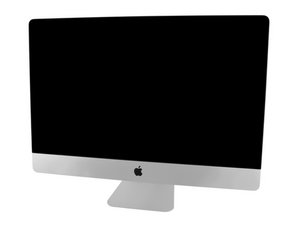Disk Utility Erase of new SDD HD fails with Permission Denied error.
I’m replacing my iMac 1Tb HD with a Critical 1 Tb SDD HD that I got from IFIXIT. Need to initialized the new SDD HD for cloning using Disk Utility in macOS Mojave. Followed directions on IFIXIT video on YouTube (https://youtu.be/saz0-c-218E) with no luck. (The YouTube video was released when the macOS was High Sierra. )
Disk Utility sees the new SDD HD, but Disk Utility/Ease fails. Yields: “Unmounting disk. POSIX Reports: The operation couldn’t be completed. Permission denied. Operation failed.”
I ran Disk Utility/First Aid to verify that the new SDD was operational. Yields:
“Running First Aid on “SuperDuper!” (disk2s1)
Repairing file system.
Volume is already unmounted.
Performing fsck_hfs -fy -x /dev/rdisk2s1
Checking non-journaled HFS Plus Volume.
Checking extents overflow file.
Checking catalog file.
Checking multi-linked files.
Checking catalog hierarchy.
Checking extended attributes file.
Checking volume bitmap.
Checking volume information.
The volume SuperDuper! appears to be OK.
File system check exit code is 0.
Restoring the original state found as unmounted.”
The new SDD HD looks good.
I suspect this is a Mojave issue, but several hours of searching in the Internet has produced no solutions. Can you help?
Cette question est-elle utile ?
